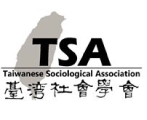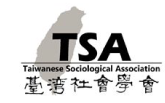場次簡介/ Description:
Social network analysis typically starts from the assumption of rational actors engaging in network behavior to pursue their own benefits. The goal of this panel is to examine this critical assumption under social network theory to explore how social actors exert agency to drive social dynamics in networks.
評論人/ Discussant:Yen-sheng Chiang 江彥生(中研院社會所)
發表人/ Presenter:
Hsiu Chi Lu (Department of sociology, National Cheng Chi University)
Hsuan-Wei Lee (Institute of Sociology, Academia Sinica)
題目/ Title:Agents of Discord: Modeling the Impact of Social Bots on Opinion Polarization in Complex Networks
摘要/ Abstract:
Concerns about the pervasive presence and influence of social bots have become a subject of extensive research in recent years. Studies have revealed that a significant percentage of active accounts are social bots, contributing to the polarization of public sentiment online. This research aims to elucidate how social bots, representing diverse ideological perspectives, exacerbate societal divisions through computer simulations employing an agent-based model in various types of complex social networks. To investigate the dynamics of opinion diffusion and shed light on the phenomenon of polarization caused by social bot activity, we incorporate bots in bounded confidence model to simulate online social networks and study the effects of social bots, enabling a comprehensive understanding of their influence on opinion dynamics. Our simulations demonstrate that the presence of bots has a notable effect on polarization, whereas the effect on polarization depends on the tolerance and homophily of agents and the structure of networks. This research offers valuable insights into the implications of social bot activities on the polarization of public opinion and the current state of digital society.
Keywords: Social bots; Polarization; Opinion dynamic; Agent-based model; Social networks
發表人/ Presenter:
Man-Lin Chen (Department of Economics, National Taiwan University, Taiwan)
Hsuan-Wei Lee (Institute of Sociology, Academia Sinica, Taiwan)
題目/Title:How can peer pressure and homophily enhance cooperation? Using Agent-based modeling for social simulations
摘要/Abstract:
Social dilemmas frequently arise in daily life, in which individuals' rational choices often lead to the worst outcomes for society. Peer pressure has been proposed as a potential solution to this problem, whereby individuals are subject to reduced payoffs when they are in the minority within a group. This study utilizes agent-based models to investigate how peer pressure can enhance cooperative behavior in individuals playing a public goods game in structured populations. The study examines the impact of collective actions when individuals belong to different social groups with varying degrees of homophily. And we also analyze the influence of peer pressure, originating from an individual's neighborhood rather than their assigned group attribute, in different importance weighting settings. The results indicate that increased levels of peer pressure can lead to a greater likelihood of cooperators dominating the game, requiring a lower threshold of synergy. Additionally, homophily can further enhance cooperative behavior. Thus, the findings suggest that cooperative behavior in collective action problems can more easily emerge when individuals face greater peer pressure and in scenarios where they have a higher tendency to associate with similar others.
Keywords: Agent-based modeling, peer pressure, homophily, social simulations, public good game
發表人/ Presenter:
Hsuan-Wei Lee (Institute of Sociology, Academia Sinica)
Mei-Yu Kuo (Department of Sociology, Ohio State University)
題目/ Title:Unraveling Social Dynamics: Exploring Structural Balance in Temporal Signed Networks Among Taiwanese High School Students
摘要/ Abstract:In the field of signed networks, structural balance theory is regarded as one of the most crucial and significant theories. Analyzing the dynamics of network structure will aid us in gaining a thorough and profound comprehension of social systems. In this study, we investigate whether the balance theory can account for the formation of signed connections in the temporal networks of Taiwanese high school students. We capture class-centric data, which includes signed network information for pupils enrolled in twenty distinct classes. The sample consists of 580 students who are clustered in 20 classes of different areas in Taiwan over three waves. The chi-square test is used to determine if balanced triads are substantially more common than imbalanced triads. The ANCOVA test is used to determine whether the degree of balance differs substantially between class contexts. Certain types of triads consistently attain class-wide balance, whereas others incline toward either no tie or imbalance. The ANCOVA model indicates that both the degree of balance and the degree of imbalance have increased by wave, on average. Nonetheless, the degree of balance does not rise quicker than the degree of imbalance. Class context factors such as the gender ratio and the mean academic performance of the students are also discussed.
Keywords: Signed social networks, balance theory, temporal networks, adolescent networks
發表人/ Presenter:
Thijs Velema (Department of Sociology, National Taipei University)
Yang-chih Fu (Institute of Sociology, Academia Sinica)
Jing-Shiang Hwang (Institute of Statistical Science, Academia Sinica)
題目/Title: Network agency and social capital: How benefitting from weak and bridging ties defers further contact initiation
摘要/ Abstract:
This study examines how people initiate contacts with others across network bridges, measured as weak ties and dyads sparsely embedded in personal networks, as a way to exert network agency in activating relations and mobilizing social capital. Based on a fine-grained dataset of contact diaries, we first confirm that individuals initiate contacts across network bridges less often than within network clusters. We then analyze how benefiting from a previous interaction defers further contact initiation across network bridges, while having limited impact on contact initiation in network clusters. For network agency, these results imply that people consider the intersection between a tie’s structural characteristics and the recent history of instrumental exchanges before making subsequent contact with network alters. More importantly, these considerations happen against a considerably shorter time horizon across network bridges than in network clusters. We discuss how the observed networking behavior compares with the rational actor assumed in much of the social networks literature.
Keywords: social capital; network agency; contact initiation; social exchange; contact diaries


